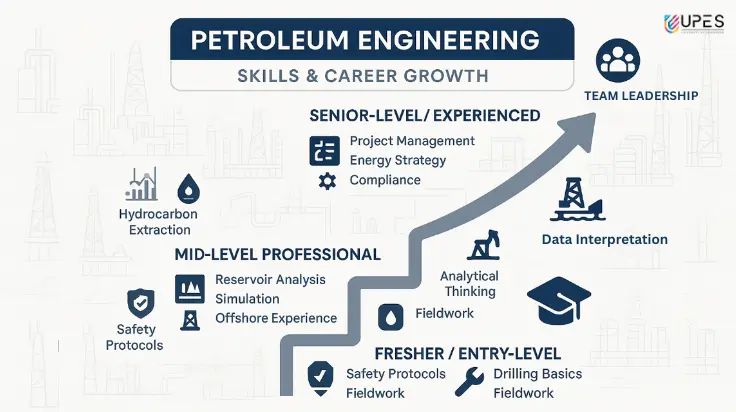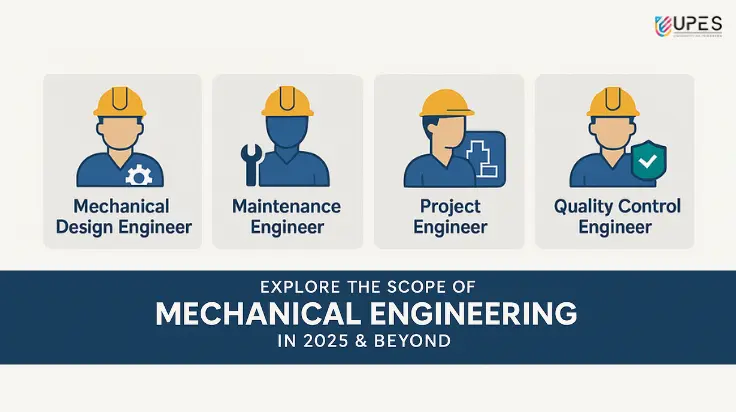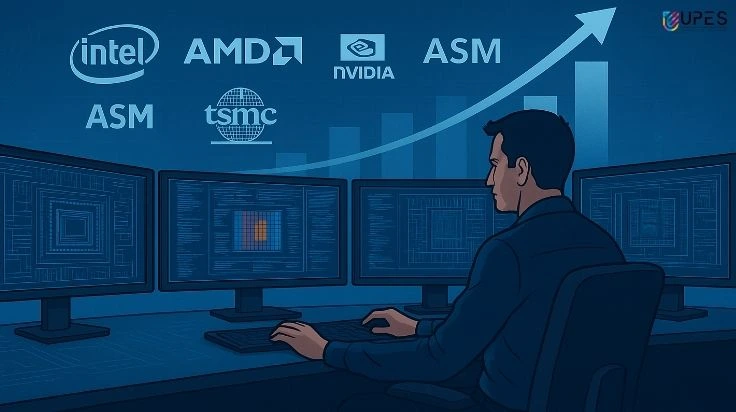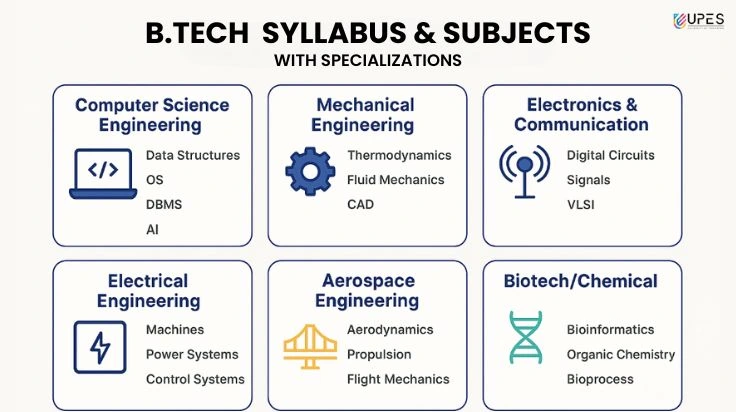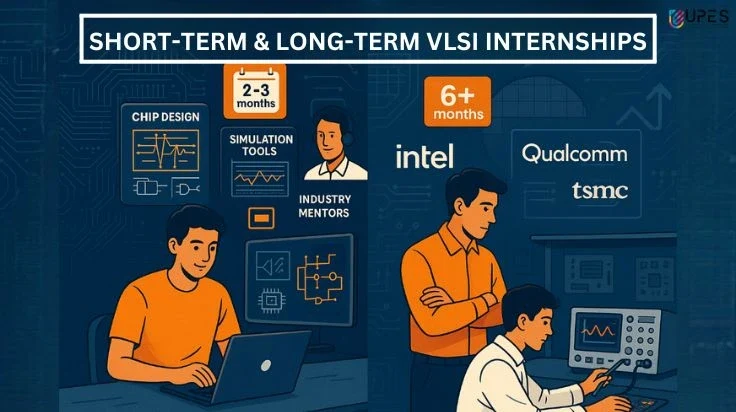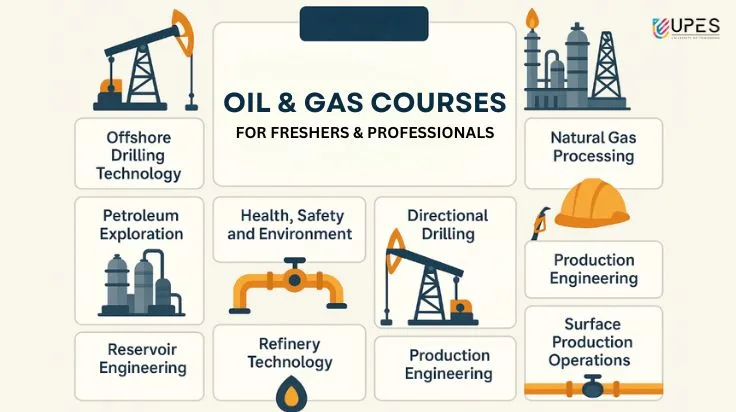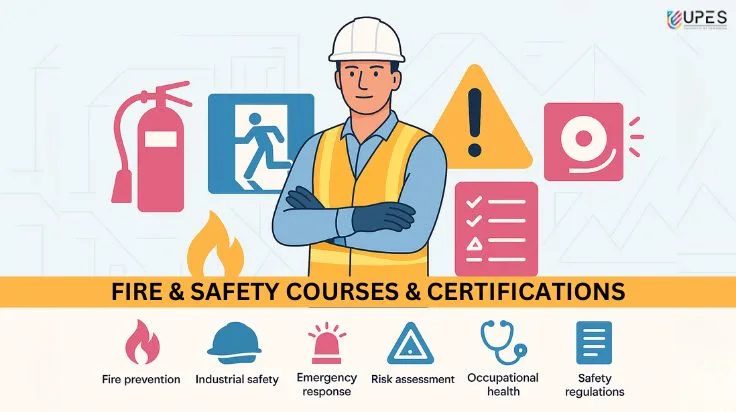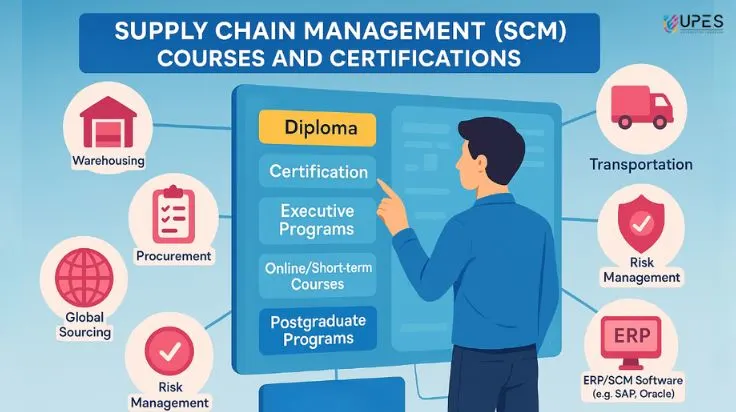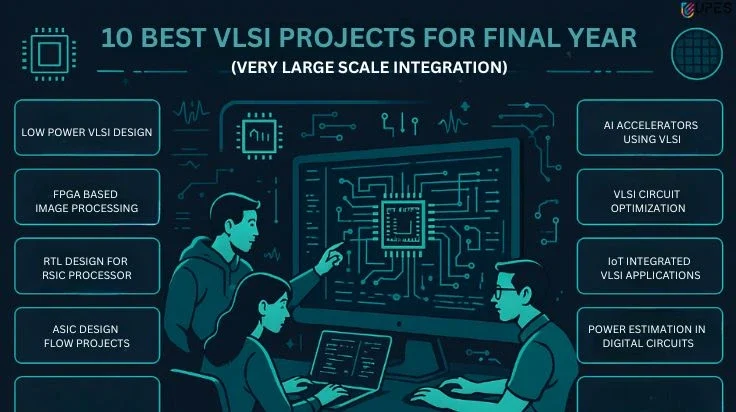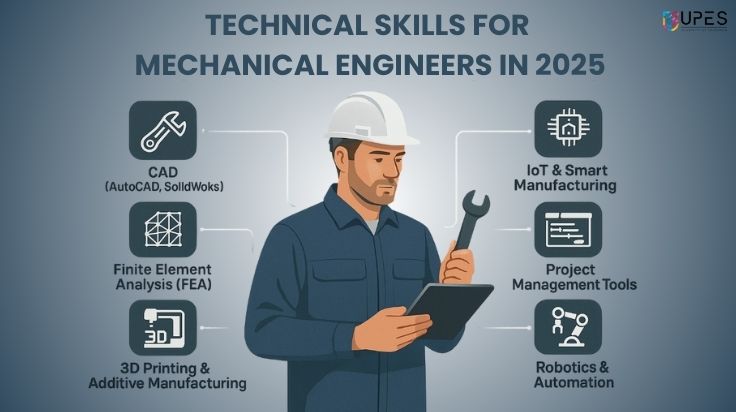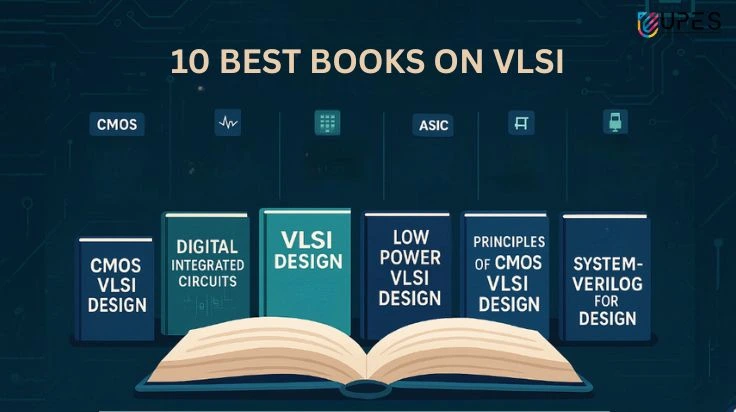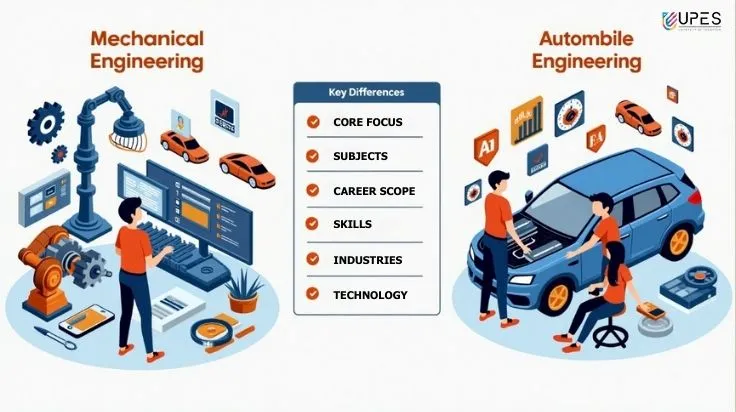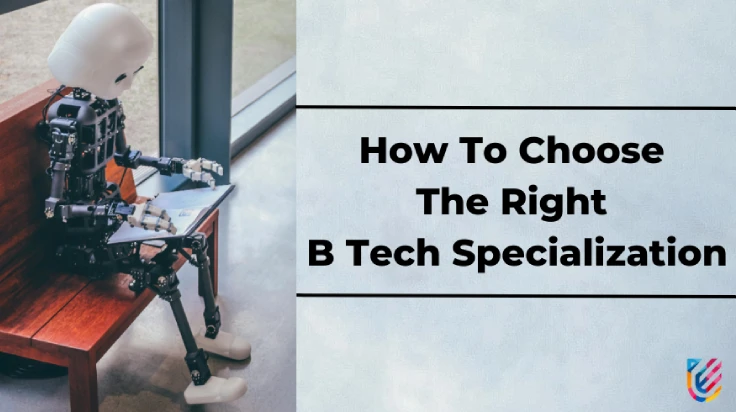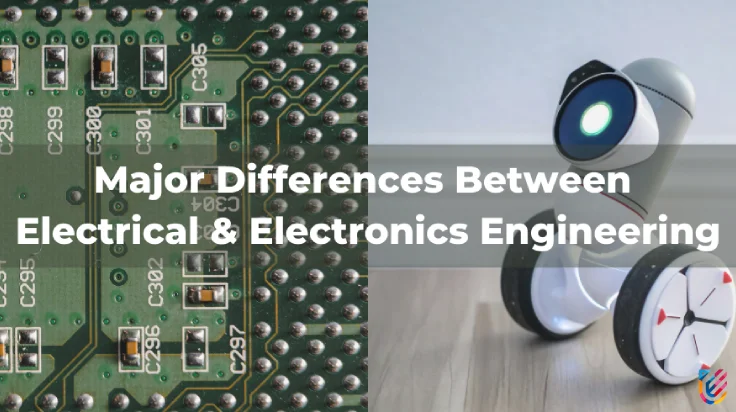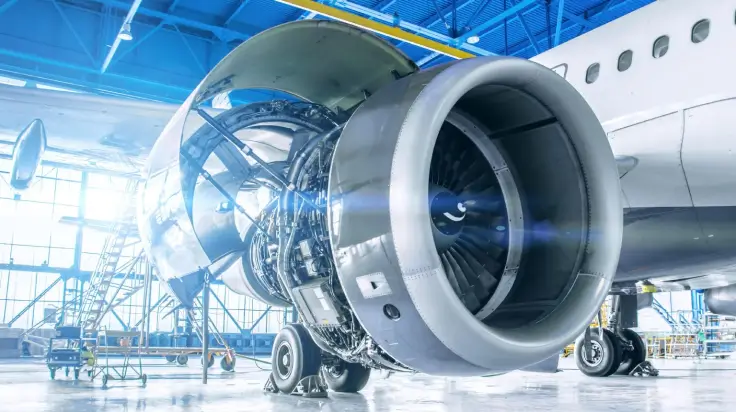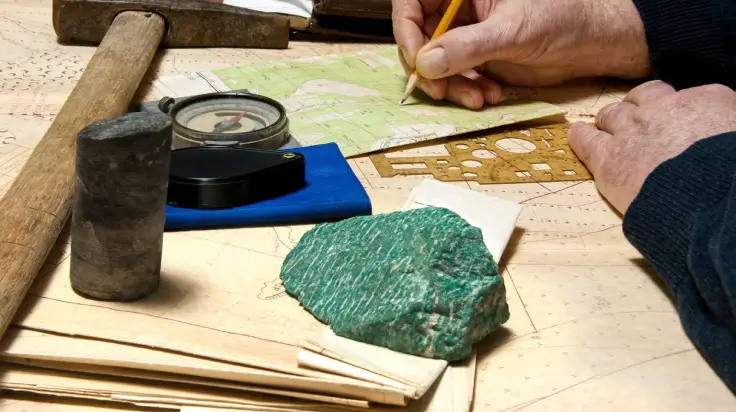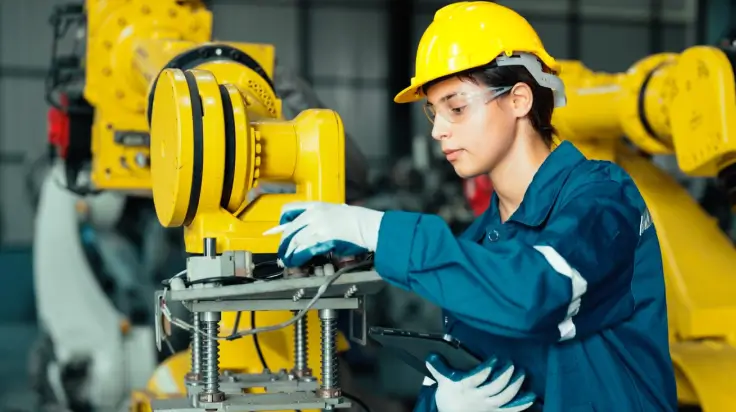B.E. vs. B.Tech: Which Is Right for You?
- UPES Editorial Team
- Published 08/10/2024

Table of Contents
- Key Differences Between B.E. and B.Tech
- Similarities Between B.E. and B.Tech
- Course Structure & Specializations
- Specializations Offered
- Future Career Scope
- Prospects for Higher Studies
- Skills Acquired Through B.E. and B.Tech
- Salary Comparison- Who earns more, BE or BTech?
- Industries to Work In
- Do BE and BTech have same value- Which Is Better?
- Key Aspects to Consider before Choosing
Choosing between a Bachelor of Engineering (B.E.) and a Bachelor of Technology (B.Tech) can be a major decision for students aspiring to enter the engineering field. While both degrees aim to develop engineering professionals, they differ in their approach, curriculum, and career prospects.
This blog will help you decode ‘are BE and BTech the same’, understand the key differences and similarities between B.E. and B.Tech, and make an informed choice for career.
Key Differences Between B.E. and B.Tech
While both B.E. (Bachelor of Engineering) and B.Tech (Bachelor of Technology) are engineering degrees, they differ in focus and course structure. B.E. focuses more on theoretical knowledge and principles, while B.Tech is more about acquiring practical applications and industry skills for hands-on engineering roles.
Focus:
B.E. is more theory-oriented, focusing on the principles and fundamentals of engineering. B.Tech, on the other hand, is more practical, emphasizing application-based learning and technological advancements. A BE degree encompasses more than just engineering; it also covers business and management subjects. This implies that while a BE degree may make a person more qualified to launch their own company or lead teams inside an enterprise, a B.Tech degree may give a person access to more specialized technical expertise.
Course Structure:
B.E. courses are designed to provide a comprehensive understanding of engineering concepts, often including more foundational theory. B.Tech courses focus more on current technologies and hands-on applications, making it slightly more industry-relevant.
Similarities Between B.E. and B.Tech
B.E. and B.Tech share several similarities, such as course duration, accreditation, and basic eligibility criteria. Both degrees are recognized engineering programs with a focus on technical education. Let’s explore these similarities in detail, helping you understand how they align in structure and scope.
Duration:
Both B.E. and B.Tech are four-year undergraduate programs.
Accreditation:
Both degrees are recognized by the All India Council for Technical Education (AICTE) and the University Grants Commission (UGC) in India, making them equally valid in terms of professional recognition.
Eligibility:
Who is eligible for BE? The eligibility criteria for admission to both B.E. and B.Tech are the same—students must have completed 10+2 with science subjects (Physics, Chemistry, and Mathematics).
Course Structure & Specializations
The course structure of B.E. and B.Tech programs differs in focus. B.E. degree teaches theoretical knowledge and fundamentals of engineering, whereas B.Tech teaches practical applications and industry-based learning. Both offer a solid foundation, but their approach to skill development varies, catering to different career aspirations.
B.E. Course Structure:
B.E. programs tend to offer more theoretical knowledge, focusing on in-depth subjects such as Applied Mathematics, Physics, and core engineering disciplines.
B.Tech Course Structure:
B.Tech programs offer a more hands-on curriculum, incorporating laboratory work, internships, and project-based learning. Specializations can include fields like Computer Science, Civil Engineering, Mechanical Engineering, Electrical Engineering, and more.
Specializations Offered
Both degrees offer diverse specializations, catering to different career paths in engineering and technology.
B.E. Specializations:
Civil, Mechanical, Electrical, Electronics & Communication, Computer Science, Information Technology, Chemical, Aerospace, Automobile, Biotechnology, Environmental, Petroleum, Textile Engineering.
B.Tech Specializations:
Computer Science, Information Technology, Mechanical, Civil, Electrical, Electronics & Communication, Artificial Intelligence & Machine Learning, Data Science, Cybersecurity, Internet of Things (IoT), Robotics & Automation, Aerospace, Automobile, Chemical, Biotechnology, Marine, Agricultural, Biomedical, Nanotechnology, Renewable Energy, Mechatronics Engineering.
Future Career Scope
From core engineering roles to emerging tech fields, understanding the future scope can help you make an informed decision about your career trajectory. Let’s explore the exciting career opportunities in both fields.
B.E. Career Scope:
B.E. graduates can pursue careers in research and development, engineering consulting, or academic roles. Common job roles include Design Engineer, R&D Engineer, and System Engineer.
B.Tech Career Scope:
B.Tech graduates often find employment in industries like IT, software development, manufacturing, and product design. Popular roles include Software Developer, Network Engineer, and Operations Manager.
Prospects for Higher Studies
Both B.E. or B.Tech students can explore options like M.Tech, M.S., or MBA, enhancing their career prospects. But understanding the unique opportunities available for each degree will help you make informed decisions on the journey ahead.
B.E. Higher Studies:
B.E. graduates can opt for an M.E. (Master of Engineering) or pursue M.Tech, MBA, or even MS abroad for further specialization.
B.Tech Higher Studies:
B.Tech graduates can pursue M.Tech (Master of Technology) or MBA for managerial roles, and are also eligible for MS programs in international universities.
Skills Acquired Through B.E. and B.Tech
Both B.E. and B.Tech degrees foster problem-solving abilities, teamwork, and critical thinking, which prepares students for varied roles in engineering and technology fields.
B.E. Skills:
Critical thinking, strong theoretical foundation, research and development capabilities, analytical skills, and problem-solving.
B.Tech Skills:
Practical problem-solving, hands-on experience with the latest technologies, project management, and technical application skills.
Salary Comparison- Who earns more, BE or BTech?
Factors like industry, specialization, and location can make a difference on how B.E. and B.Tech graduates can earn. B.Tech graduates have an edge in technical roles, while B.E. holders often pursue diverse fields. Detailed salary insights below:
B.E. Salary:
The average starting salary for B.E. graduates ranges from ₹3.5 to ₹7 lakhs per annum, depending on the industry and location.
B.Tech Salary:
Wondering now what is BTech Salary? B.Tech graduates typically earn slightly higher, with salaries ranging from ₹4 to ₹8 lakhs per annum. Those specializing in IT or data science can command higher packages.
Industries to Work In
B.E. degree holders often explore opportunities in traditional engineering fields, while B.Tech graduates find growth in technology-driven sectors.
B.E. Industries:
B.E. graduates can work in industries like construction, telecommunications, aerospace, research institutions, and public sector undertakings (PSUs).
B.Tech Industries:
B.Tech graduates find employment in industries like software, IT services, e-commerce, product development, and manufacturing.
Do BE and BTech have same value- Which Is Better?
Neither degree is “better” than the other—it depends on your career goals. B.E. is ideal if you're inclined towards theoretical concepts, research, or academic roles. If you prefer a more practical, industry-oriented career, B.Tech might be a better fit.
Key Aspects to Consider Before Choosing
Evaluate industry demand, potential job roles, and internships offered by colleges. Understanding these factors will help you make an informed decision that aligns with your aspirations and interests.
Specialization
When selecting a degree, consider which specialization aligns with your interests and career goals, such as computer science, mechanical engineering, or civil engineering and what field you want to grow your career in. Both B.E. (Bachelor of Engineering) and B.Tech (Bachelor of Technology) offer various specializations.
Career Goals & Industry Demand:
If you aim to work in core engineering roles, research, or development, B.E. may be the right choice. If you're more interested in applied technologies or software engineering, B.Tech is likely better. Research the current trends in the job market to determine which engineering fields are in high demand. Certain specializations & fields like data science, cybersecurity, and renewable energy are rapidly evolving & have better job prospects due to technological advancements.
Study Approach:
B.E. focuses on the theoretical aspects of engineering, whereas B.Tech is more practical and hands-on. Choose based on your preferred learning style.
Future Studies:
For students planning to pursue an MBA or MS, either B.E. or B.Tech will work, but if you're interested in research or further specialization, B.E. might have a slight edge.
Conclusion
Both B.E. and B.Tech have their own merits, and the choice depends on your individual interests and career aspirations. If you're looking for a balance between theoretical and practical knowledge, B.E. is the way to go. However, if you want to work with cutting-edge technologies and prefer a more application-based approach, B.Tech is the ideal choice. Whichever you choose, both degrees will open doors to diverse career opportunities in engineering and technology.
UPES Editorial Team
Written by the UPES Editorial Team
UPES Admission Enquiry
Subscribe to UPES Blogs
Join our community for exclusive stories, insights, and updates
By clicking the "Subscribe" button, I agree and accept the privacy policy of UPES.









